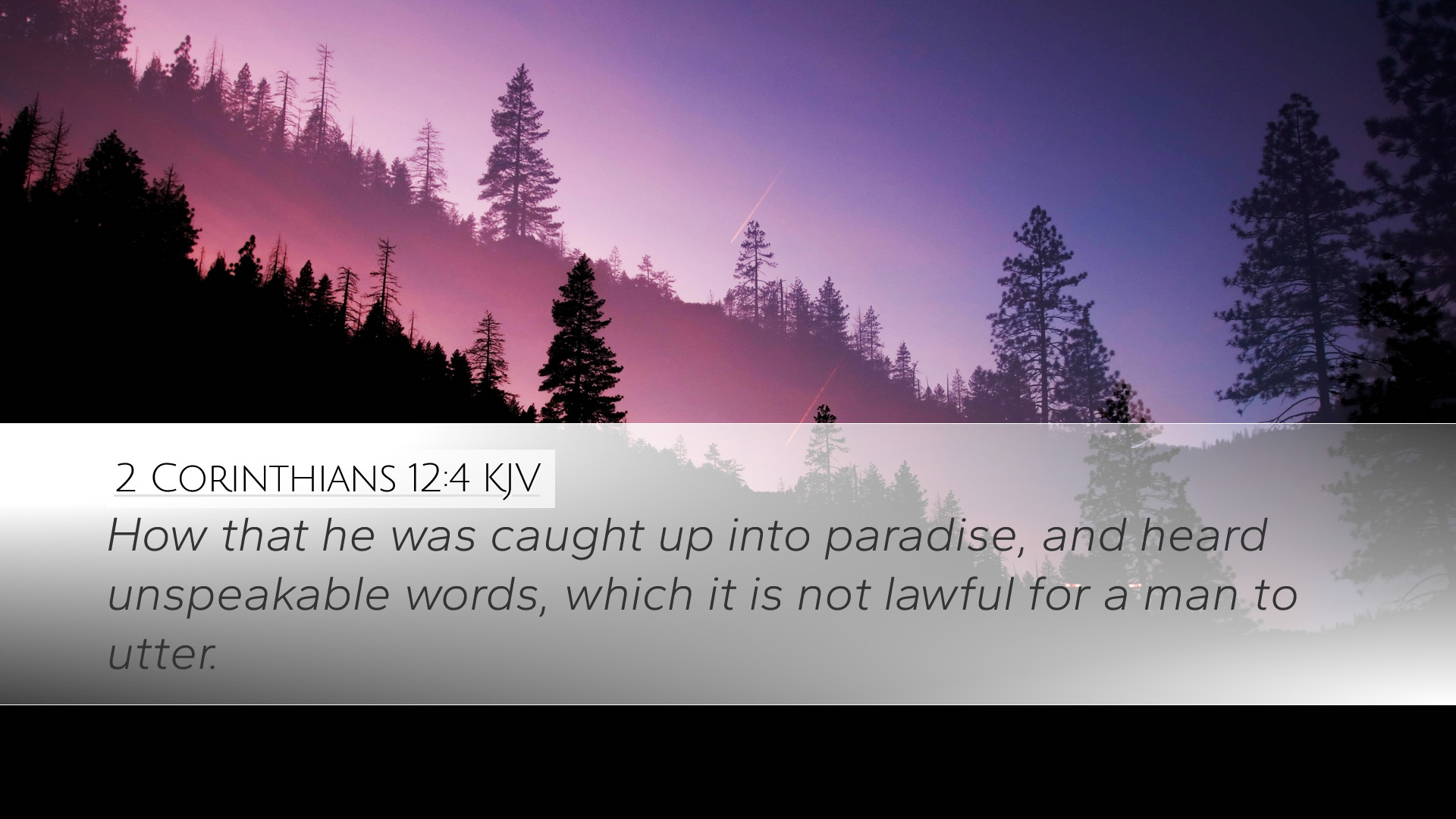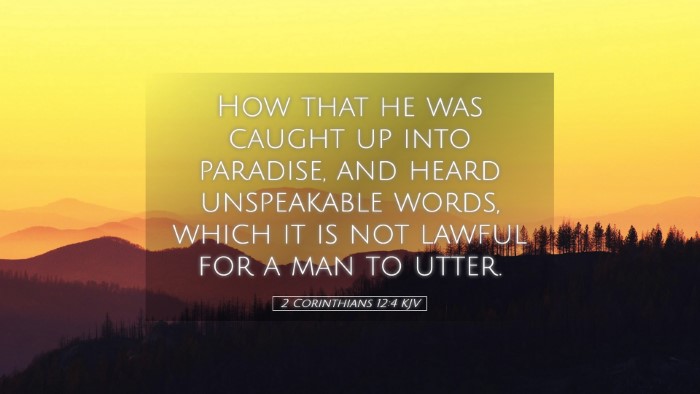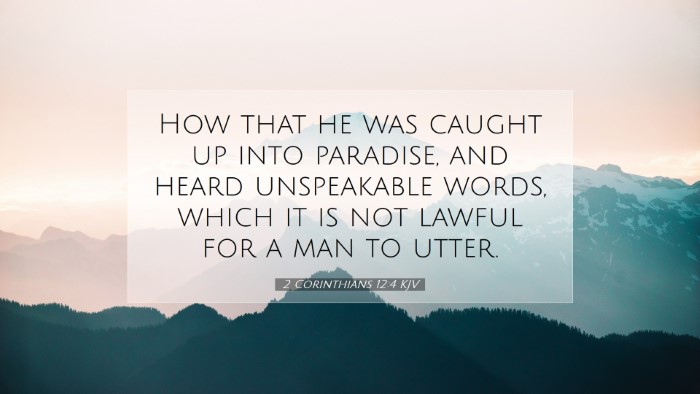Commentary on 2 Corinthians 12:4
Verse: "How that he was caught up into paradise, and heard unspeakable words, which it is not lawful for a man to utter." (2 Corinthians 12:4)
Introduction
The Apostle Paul’s letters often reveal profound insights into his experiences and the theological truths he imparted. In 2 Corinthians 12:4, Paul speaks of a unique and extraordinary experience of being caught up into paradise. This commentary draws on public domain commentaries to explore the implications, meanings, and theological significance of this passage.
Contextual Overview
The context of 2 Corinthians chapter 12 is one of defending Paul’s apostleship against false apostles and critics. Paul employs a form of irony and humility in discussing his own experiences, ultimately focusing on the sufficiency of God’s grace amidst the hardships he faced.
General Themes
- Paradise: The term 'paradise' refers to a place of bliss and divine presence. In biblical usage, it denotes the abode of the righteous after death (cf. Luke 23:43).
- Revelation: Paul mentions hearing “unspeakable words” which highlights the sacredness and mystery surrounding divine revelation.
- Inexpressible Experience: The experience is deemed inexpressible, indicating a depth of spiritual reality that transcends human articulation.
Exegesis and Insights
Catch Up into Paradise
Matthew Henry notes that being “caught up” suggests a sudden and divine act, elevating Paul’s experiences from the mundane to the supernatural. He contrasts this experience with earthly struggles, emphasizing that the glories of heaven affirm the believer's hope.
The Nature of Paradise
Albert Barnes elaborates on the term 'paradise', affirming its usage in ancient texts as a garden of delight. He correlates this notion with the state of the soul after death, suggesting that Paul's reference serves to assure believers of the eternal joy that awaits them.
Unspeakable Words
Adam Clarke provides a striking analysis on the “unspeakable words”, positing that the teachings Paul received during this divine encounter transcended human understanding and expression. Clarke uses this to elaborate on the limitations of human language when conveying divine truths, highlighting the mystery of God’s revelation.
Theological Implications
Humility in Revelation
Paul’s reluctance to share the specifics of what he heard speaks to a principle of humility among believers. Matthew Henry suggests that those who receive great revelations must remain humble, acknowledging that all knowledge comes from God.
The Assurance of God’s Presence
This passage reassures believers of God’s intimate presence and the hope of eternal life. The experience reinforces the notion that despite earthly trials, there is a divine reality that awaits, an idea pervasive in the writings of both Barnes and Clarke.
Contrasting Human Weakness with Divine Strength
The juxtaposition of Paul’s weaknesses, as detailed in previous verses, with his exalted experience serves to underline God's power being made perfect in weakness (2 Corinthians 12:9). This becomes a profound encouragement for believers facing their own trials.
Conclusion
2 Corinthians 12:4 stands as a testament to the richness of spiritual experiences and the limitations inherent in human speech regarding divine encounters. The combined insights of Matthew Henry, Albert Barnes, and Adam Clarke provide a multi-faceted understanding of this verse, offering encouragement, hope, and a deeper appreciation of the invisible realities that shape the Christian faith. Pastors, scholars, and students would do well to reflect on the implications of Paul’s experience as it relates to their own spiritual journeys.


